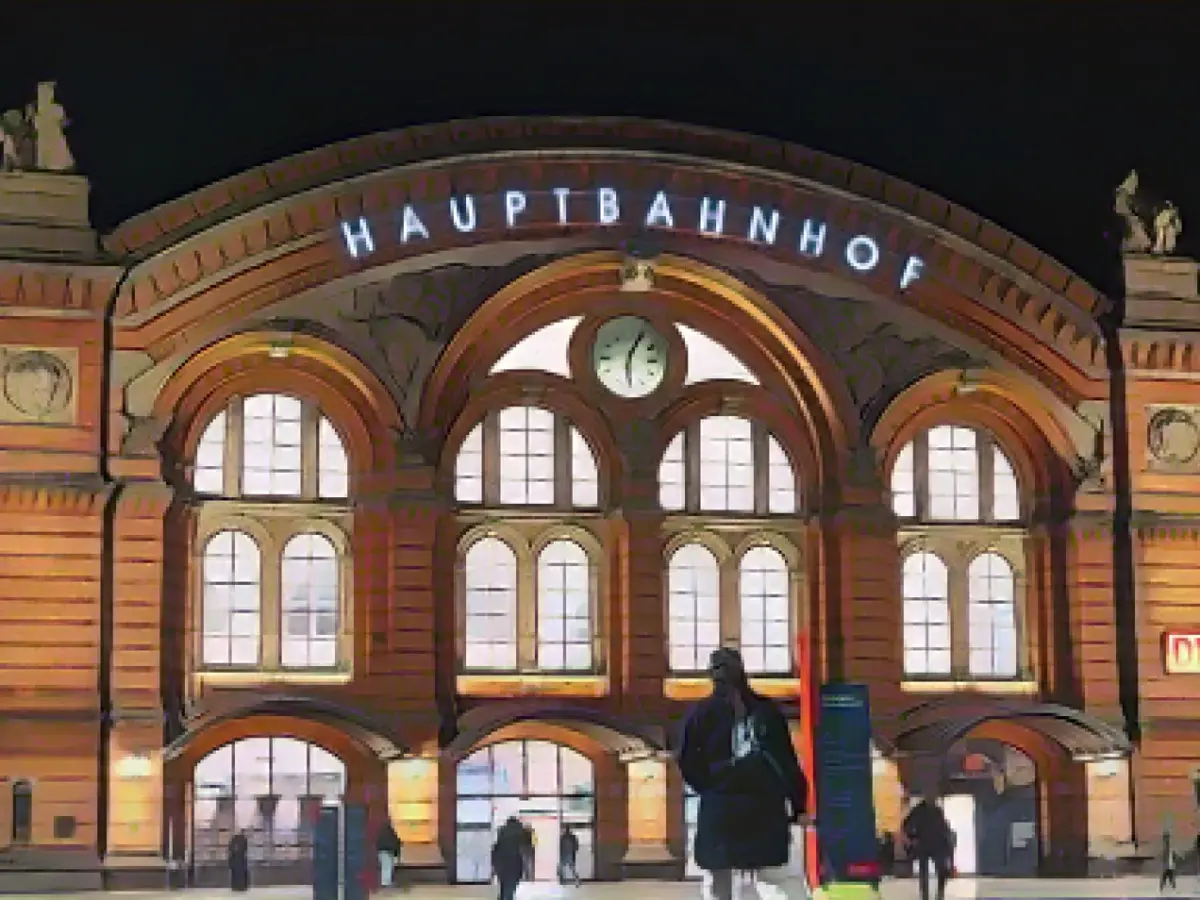The Struggle at Germany's Least Desirable Train Stations - More Than Just Misery for Many
German train stations have earned the ire of weary travelers across Europe, with Bremen leading the pack as Europe's least traveler-friendly station according to a controversial survey by the US Consumer Choice Center (CCC). Despite criticism over the survey's legitimacy, the results seem close to the truth, painting a grim picture for daily commuters.
As a seasoned commuter, I can attest to the grim reality. Standing on drafty platforms in Bremen during the winter cold or squeezed into crowded trains in Hamburg are just some of the experiences you'll encounter at Germany's train stations. The stations in question have managed to garner the title of worst in the country, an unwanted crown they seem to savor without remorse.
The Sinister Side of the Station
The city of Bremen, home to the European Railway Index 2023's least desirable station, has become a hotbed for crime and lawlessness. In recent years, the area around the train station has turned into a haven for violent crime, drug use, and petty theft. The city authorities have responded by enforcing an alcohol and drug ban zone, bolstered by extra police presence. However, these measures seem to have notched up tensions instead of forging a sense of safety.
The fear of crime and violence at German train stations is an ever-present threat, a palpable anxiety that tends to linger in the periphery of passengers' minds. A stolen bicycle, a pursuing stranger, a sense of unease - these moments leave a lasting impression that seldom fades.
The Allure of the Crowded Carriage
As an old student, train stations were a source of excitement. The bustling atmosphere, a melting pot of humanity, soon lost its charm. Delays and cancellations, regardless of how early I left, became the norm. A journey from Hanover to Bremen turned into an arduous six-hour excursion, thanks to train repairs and avoidable breakdowns.
The Limbo of Uncertainty
Uncertainty is an unwelcome companion at German train stations. Will the train arrive on time, or will it be delayed again? Will the train have enough carriages to accommodate the passengers, or do I have to switch trains? Bremen, with its notorious train station, finds itself at the very bottom of the list.
German railways have come under fire for their inability to address the root causes of train cancellations and delays. Their focus on infrastructure issues and labor disputes has left passengers feeling stranded and frustrated.
Forces Beyond Our Control
In the grand scheme of things, rail companies have little control over external factors affecting their services. A simple keyboard click by an air traffic controller could cause delays, like the one experienced on a flight from Hamburg to Munich. Or a rail strike by the Deutscher Lokomotivführer (GDL) union could upend travel plans, leaving commuters stranded and waiting.
The Unrelenting Commute
With no end in sight to the delays, cancellations, and economic burdens, commuters have learned to embrace their fate with a heavy heart. Convenience has become synonymous with endurance, something they must grit their teeth through to make their way from point A to point B.
Read also:
Despite the poor ranking of German train stations in Europe, commuters continue to face challenges and inconveniences. Unreliability, promptness, and labor disputes are significant concerns. These issues have left passengers feeling frustrated and helpless, as they eagerly wait for improvements to their daily commute.
Source:
Enrichment Data:
- A recent article published by Stern.de sheds light on common challenges encountered by travelers and commuters at German train stations, but fails to address in-depth criticisms and concerns.
- In 2021, train cancellations spiked due to inadequate scheduling, infrastructure challenges, and labor disputes, such as the 2024 train strike by the German Labor Union (GDL).
- The German national rail company, Deutsche Bahn, has been criticized for their lackluster approach to addressing the root causes of train cancellations and delays, instead focusing on infrastructure issues and labor conflicts.
- Safety concerns at German train stations have been a long-standing issue, with reports of petty crime, drug use, and violent incidents reported at various stations across the country. In an attempt to address these problems, some cities have introduced alcohol and drug bans and increased police presence, yet the issue persists.
- The EU Commission has recognized the pressing need to upgrade travelers' rights and transparency in the rail industry, with potential implications for improved service and safer commuter experiences in Germany.
These points suggest that the difficulties faced by passengers and commuters at German train stations go beyond simple delays and cancellations. Innumerable external factors, including safety concerns, inadequate infrastructure, and labor disputes, combine to form a complex web of issues that plagues travel on the country's railways.
The article from Stern.de does not elaborate on how these challenges affect daily life for commuters, but it does reveal that the EU Commission is working on strengthening travelers' rights and increasing transparency in the rail sector. This could potentially help address the various issues confronting passengers and commuters on German trains.







